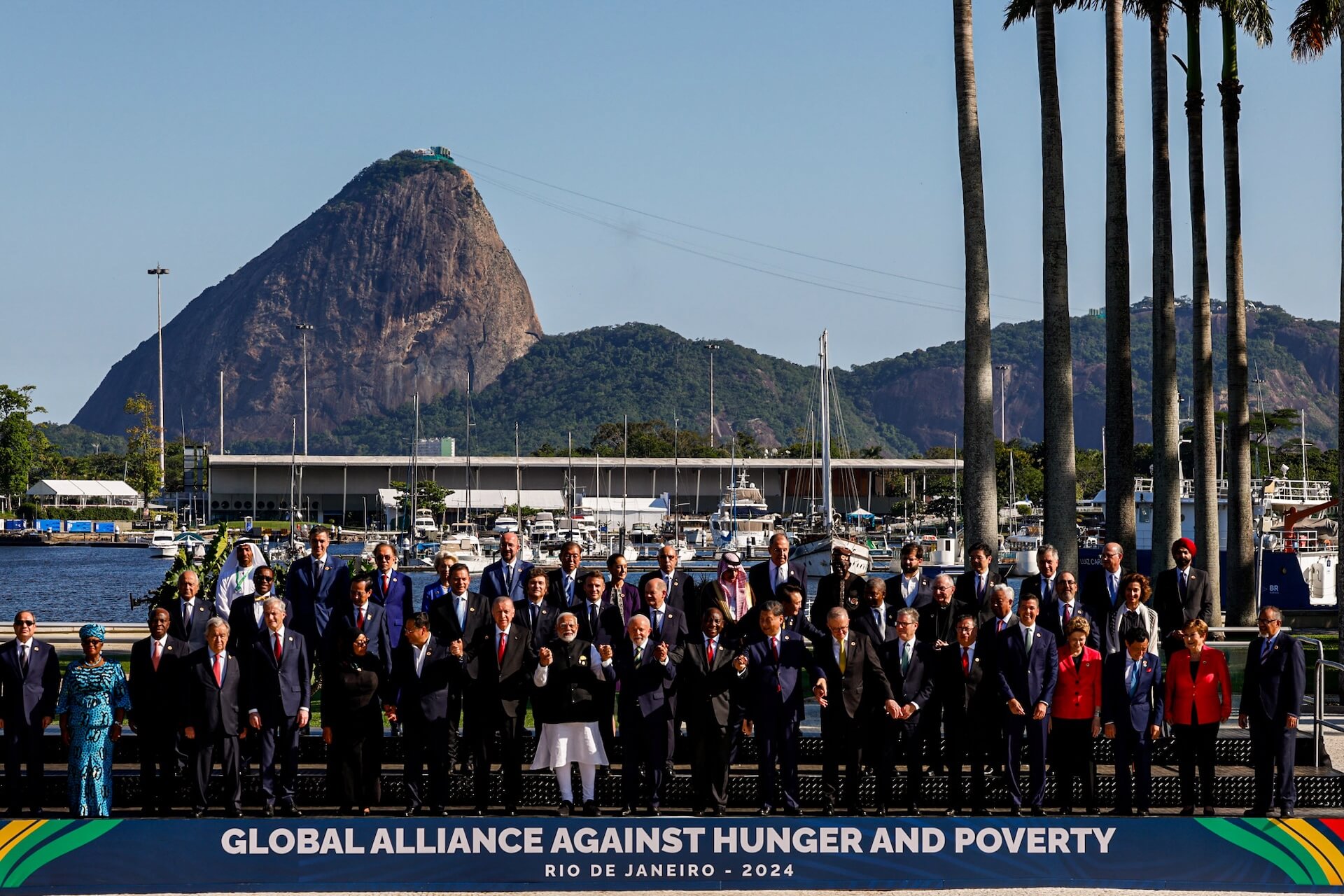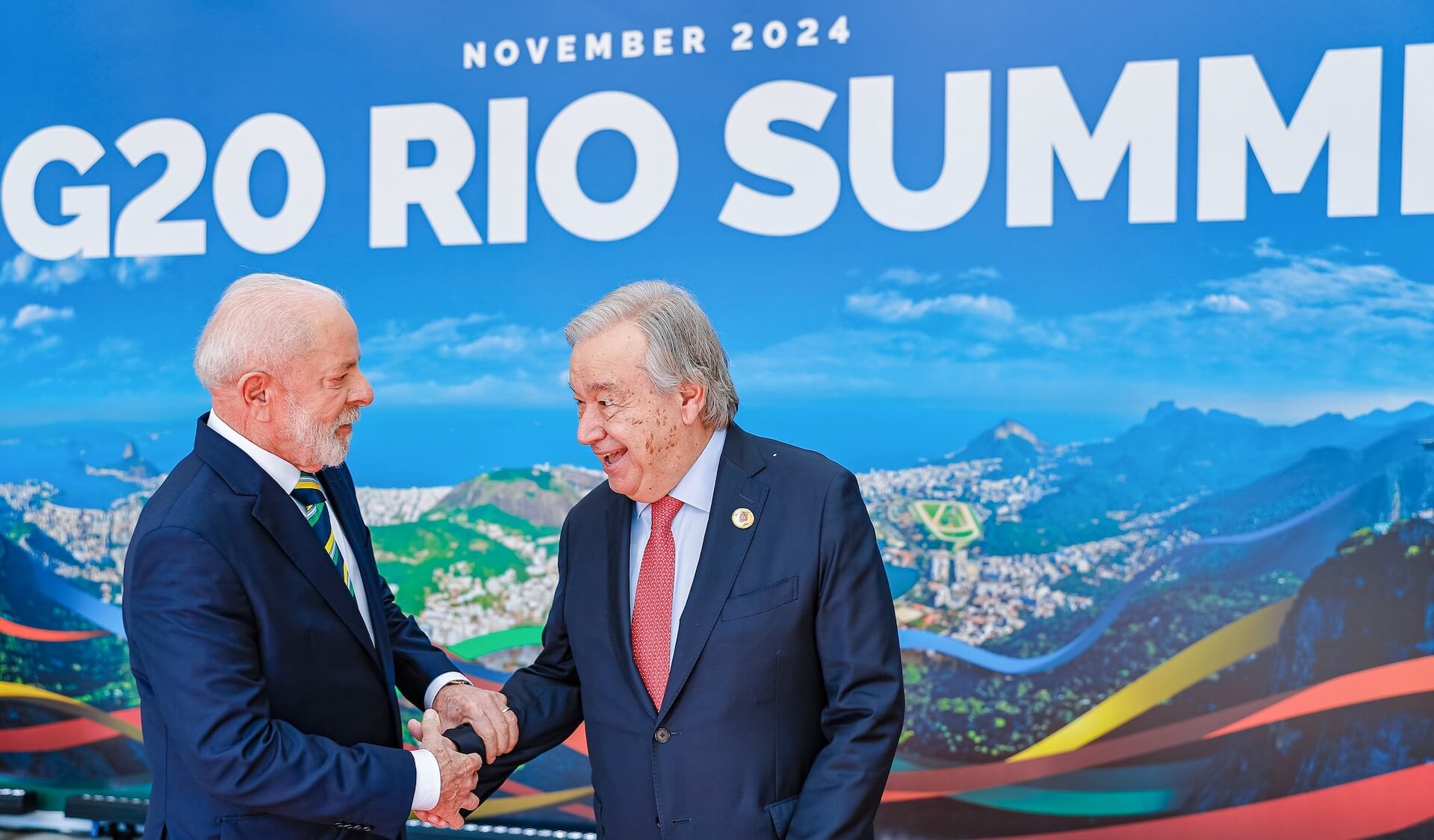Ending Wars, Taxing the Super-Rich, and Urgent Environmental Goals: Meet the G20 Leaders' Declaration
The leaders approved the final text of the world's largest economies during the first day of the Summit; the document reinforces agreements already envisaged and commits to deadlines for implementing measures.

The leaders approved the final text of the world's largest economies during the first day of the Summit; the document reinforces agreements already envisaged and commits to deadlines for implementing measures.
The G20 Leaders' Declaration expresses concerns about the changing world. Furthermore, it is committed to taxing the super-rich and uniting efforts to end wars, combat inequalities, and tackle climate change. The final text was released on Monday (18).
All decisions in the text were defined by consensus among the countries, as this is a determination of the Summit. The promotion of gender equality, which Argentine President Javier Milei criticized, was also approved.
The last two meetings, in Indonesia and India, did not have an official document because there was no agreement between the countries.
Here are some topics from the G20 declaration:
End of armed conflicts
The group's members said everyone should avoid threats and the use of force to seize territory and sovereignty from another state. The document names the war in Ukraine and its negative effects on all nations involved. It also stresses that all efforts to avoid human suffering are welcome.
G20 nations also declared their confidence in the peaceful coexistence between the State of Palestine and the State of Israel unanimously and recommitted to advancing the effort to end nuclear weapons.
Taxation of super-rich
The subject of a standoff with Javier Milei, the members accepted the taxation of the super-rich. Countries will cooperate by sharing positive experiences in their countries, promoting debates on the subject, and creating policies against currency evasion.
World leaders have agreed to continue debating the creation of a UN Framework Convention for tax cooperation between countries. In addition, leaders endorsed progressive taxation—where those with more money pay more taxes—as recommended by the G20 Ministerial Declaration of Rio de Janeiro.
Climate change

Nations have proposed urgent actions and strengthened existing agreements to tackle climate change. Regarding the Paris Agreement, the document reinforces the commitment to limit the global average temperature increase to below 2°C. And, although not guaranteeing it, the nations signal an effort toward an even more ambitious goal of limiting the increase to 1.5°C —which, according to the document, would have "significantly better" effects.
The Consensus also covered net greenhouse gas emissions. The group expects that by 2050, this pollutant will no longer be used by G20 countries. A goal to end plastic pollution by the end of this year was also presented.
For funding, the group has committed to promoting and encouraging public and private investments in Nature-Based Solutions. President Lula called on countries to take more concrete actions. "Everyone can do more," said the president.
The document also endorsed proposals from COPs 29 and 30. President Lula said this will be the last chance for effective actions capable of reducing the effects of climate change. "I count on everyone to make the Belém COP the Turning Point COP," said the president.
Fighting hunger and poverty and social inclusion
The main project in this area is the Global Alliance Against Hunger and Poverty, launched on Monday (18). 82 countries, 2 continental blocs, 24 international organizations, 9 financial institutions, and 31 philanthropic and non-governmental organizations will participate, all committed to taking local actions and contributing to actions elsewhere in the world with funding or experiences. It was emphasized that the countries in the most severe situation should be the ones that will receive the most help, ensuring that "no one is left behind."
The G20 member countries have recognized inequalities as an "intergenerational" problem, which goes far beyond a person and affects their entire family and the next generations.
Universal health
The declaration commits to advancing the "One Health" approach, which encompasses the connections between environmental and human health and recognizes the medicinal potential of traditional peoples’ practices. The eradication of epidemics is also a priority for countries.
Still about Health, the group reiterated the legitimacy and relevance of the World Health Organization in coordinating a "global health architecture" to promote universal coverage. The text also recognizes the need to discuss antimicrobial resistance, which has the potential to evolve into new pandemics.
Gender equality
This point was the subject of disagreement with Argentine President Javier Milei but was unanimously approved by the leaders.
In addition to highlighting the creation of the Women's Empowerment Working Group, leaders pledged to appoint and support more women in positions of power, including on the Security Council and at the UN General Assembly.
Global governance reform
The leaders highlighted that the current governance model does not represent the 21st-century world, and that reform is needed to make it more meaningful, representative, transparent, and effective.
It has been proposed to reform the Security Council and the UN secretariat to include more women and countries from Asia, Africa, Latin America, and the Caribbean. It was also suggested that a 25th seat be created at the International Monetary Fund to provide representation from Sub-Saharan Africa
Technology
The need for transparency and accountability of large platforms was also the theme of the Declaration. According to the leaders, a joint effort with these companies will develop policies and legal frameworks to address this legislative gap.
Artificial Intelligence was recognized as an instrument that can help the population, but it also has the potential to pose a risk to jobs. Artificial Intelligence was recognized as a tool that can assist the population, but it also has the potential to threaten jobs. The countries' proposal is a regulation that allows users to enjoy AI's full potential while protecting them from its risks.
*By Everton Victor and Julia Lima. Content originally published on Uerj's Scientific News Agency (Agenc).
*Translated by PGET-UFSC